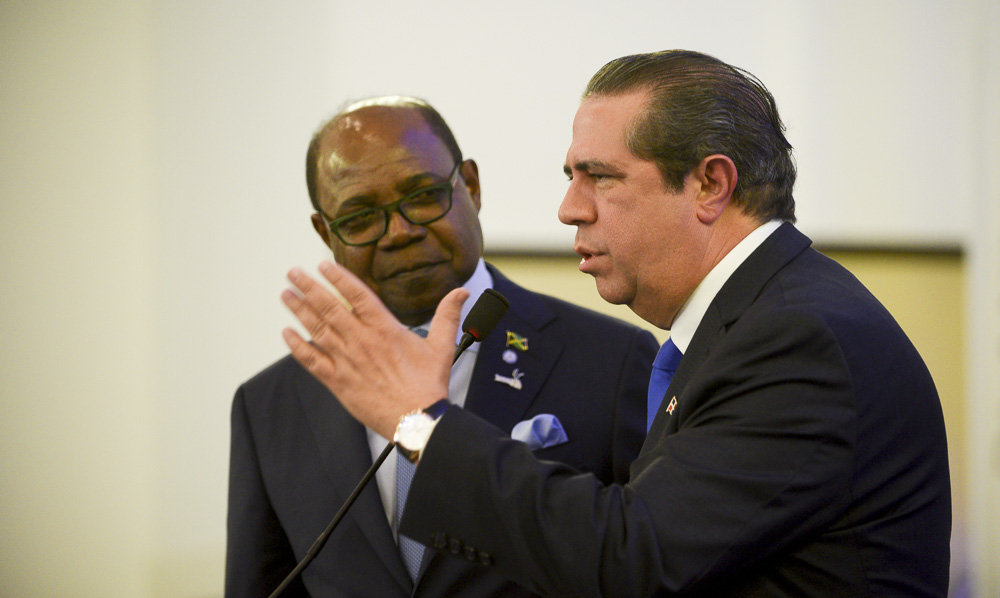
The Swiss hotel industry reported decreasing numbers not only of the Russian tourists but the Japanese guests as well. From January to October, hotels in Switzerland welcomed 10.7 percent fewer Japanese visitors than in the previous year (Jan-Oct 2013).
The Federal Statistical Office (FSO) of Switzerland commented that the slump is therefore significantly greater than for the Russians. The decline in overnight stays of Russian tourists was 7.4 percent in the same period.
According to Daniela Bär from Switzerland Tourism, more than a half of the overnight stays by Russians fall on the winter months, while the distribution over the year is more even for the Japanese. In recent years, people in Switzerland had been pleased with the wealthy Russian guests, who filled the hole in January due to the later Christmas and New Year celebrations.
In the Wake of Currencies
Currency fluctuations are probably responsible for the sharp decline of Japanese and Russian guests. The devaluation of the ruble has accelerated dramatically in the past few days. Since the beginning of December, the Russian currency lost around a third of its value with respect to the Franc. Since the beginning of the year, the ruble has even lost more than half of its value.
The reasons for the ruble collapse are the Ukraine crisis, the resulting sanctions of the West against Moscow, and the decreasing oil prices. The Russian government also advised against traveling to the West for patriotic reasons.
Even the Japanese have been groaning for a long time under the burden of the exchange rate. The Japanese Yen lost around a fourth of its value over the last two years. The desire of the Japanese to travel was also inhibited by a doubling of the consumption tax.
Switzerland Tourism anticipates a decline in Japanese tourists of around 10 percent for the full year of 2014, as Bär says. The slump in overnight stays by Russians could be even more severe.
The national marketing organization is expecting a decline of overnight stays of 10 to 30 percent for the current season. According to calculations of Switzerland Tourism, this will result in a sales decline between 7.5 and 22.5 million CHF for Swiss tourism.
Zermatt: Bookings Are Good
Russians are more important to Zermatt than for most other Swiss destinations. In winter, they make up the fourth-largest group of guests behind the Swiss, Germans and British, as Marc Scheurer, Assistant Director of Zermatt Tourism and Head of Marketing – responsible for Switzerland Russia and Southeast Asia – explained.
Scheurer said that the reservations by Russian guests are good for the holidays. Whether all reservations also lead to overnight stays remains to be seen. 2.5 percent of all Zermatt guests over the course of a year are Russians. In 2013, close to 50,000 overnight stays were generated by Russians. For 2014, Zermatt Tourism is expecting 46,700 overnight stays, which would correspond to a decline of over 6 percent. This would make the decline in Zermatt significantly lower than Switzerland Tourism fears.
The fact that the majority of Russian guests in Zermatt book 5- or 4-star hotels could be a positive factor. In this case, unfavorable currency fluctuations empirically show less of an effect on the behavior of guests.
According to Scheurer, there have been hardly any cancellations so far in the 5-star business. However, some cancellations were noted down at the 3 and 4-star hotels.
In addition, Scheurer states that most Russians would have already paid for their vacation when booking. Many Russians also own accounts in dollars and euros. However, the currency situation is sure to have an effect on shopping behavior.
Zermatt recorded a decrease of almost 19 percent in overnight stays by Japanese tourists in the last year (November 2013 to October 2014). This corresponds to a decline of 18,300 overnight stays.
Switzerland Tourism Relies on China and the Gulf States
To attract Russian vacationers, 1.4 million CHF is available to the five Switzerland Tourism workers in Moscow every year. In Japan, six workers are working just as hard on the same mission to promote Switzerland to the Japanese. They, however, only have 600,000 Francs at their disposal.
Switzerland Tourism expects that nothing will change in the currency situation in Japan in the short and long term. At best, a certain acclimatization effect will come into play.
Those responsible for Swiss tourism are now investing disproportionately in markets such as China or the Gulf States. They promise great growth potential and also show some pleasing results.
For example, the hotel stays by Chinese guests increased by 13.3 percent from January to October. An increase of 23.1 percent was recorded for guests from the Golf States.











